25 of the most amazing archaeological finds in history
Categories: History
By Pictolic https://pictolic.com/article/25-of-the-most-amazing-archaeological-finds-in-history.htmlArchaeology may not be the most breathtaking profession, but it certainly has its own exciting moments. Of course, it's not every day that archaeologists find valuable mummies, but occasionally you can stumble upon something really amazing, whether it's ancient computers, huge underground armies, or mysterious remains. We bring to your attention 25 of the most amazing archaeological finds in the history of mankind.
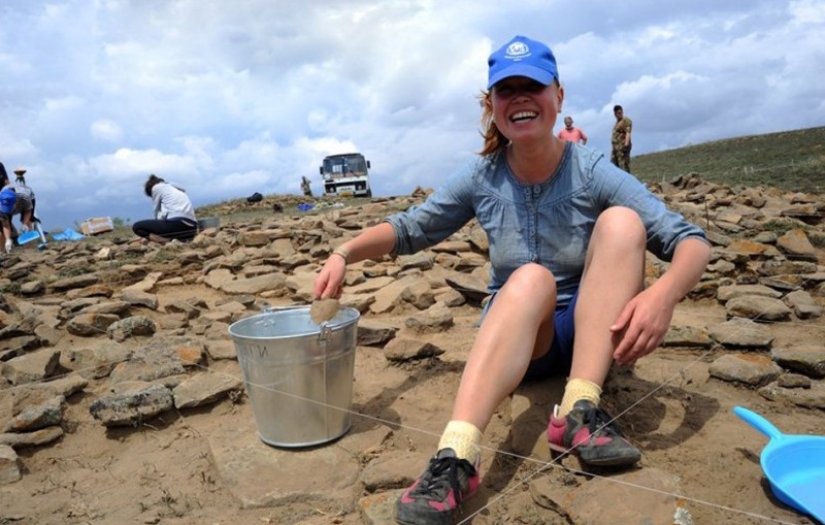
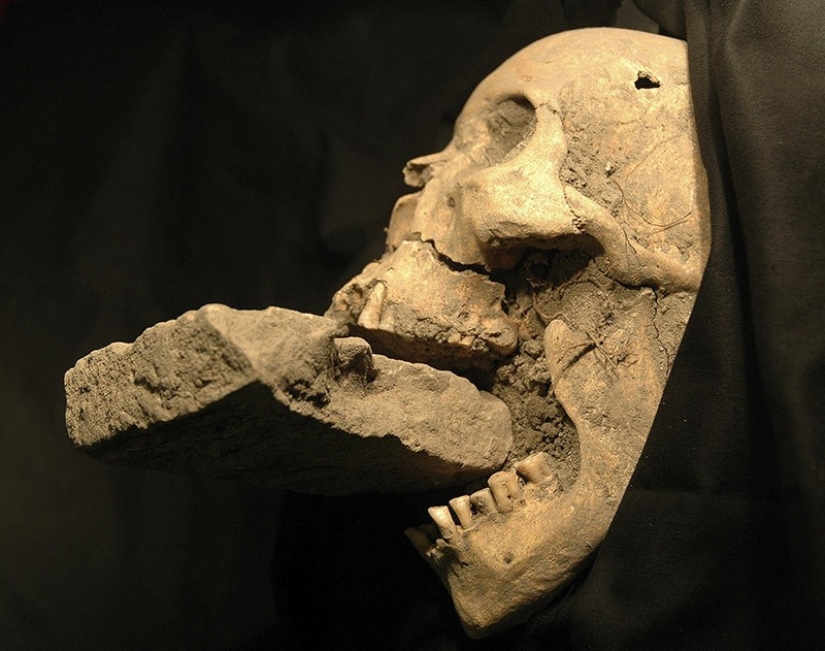
1. The Venetian Vampire
Today, every schoolboy knows that in order to kill a vampire, you need to put an aspen stake in his heart, but hundreds of years ago this was not considered the only method. Let me introduce you to an ancient alternative-a brick in the mouth. Think for yourself. What's the best way to stop a vampire from drinking blood? Of course, fill his mouth with cement to the brim. The skull you're looking at in this photo was found by archaeologists on the outskirts of Venice in a mass grave.
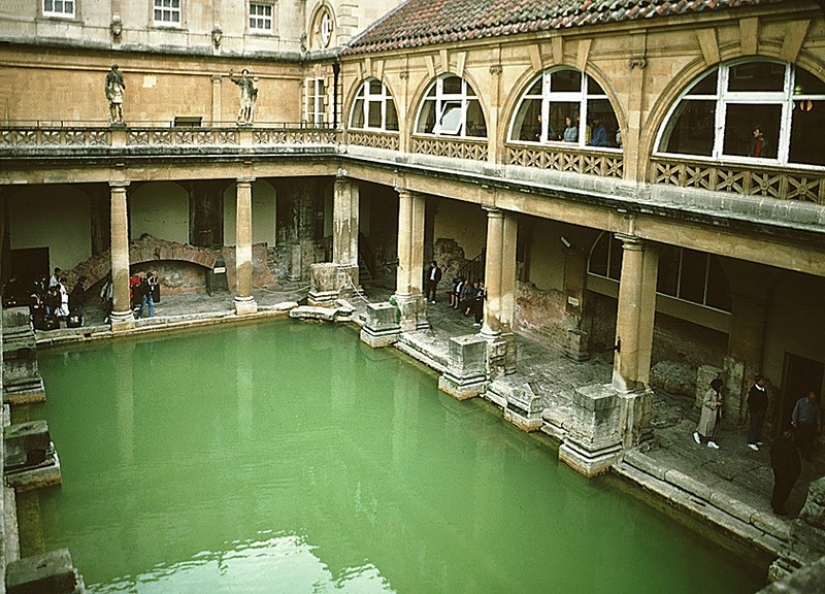
2. Children's dump
At the end of this post, you will probably realize that for a long time people (at least in the past) have been supporters of cannibalism, sacrifice, and torture. Here, for example, not so long ago, several archaeologists were excavating in the sewers under a Roman / Byzantine bath in Israel and came across something really terrifying... the bones of children. And there were a lot of them. For some reason, someone upstairs decided to dispose of a lot of children's remains by simply throwing them down the drain.
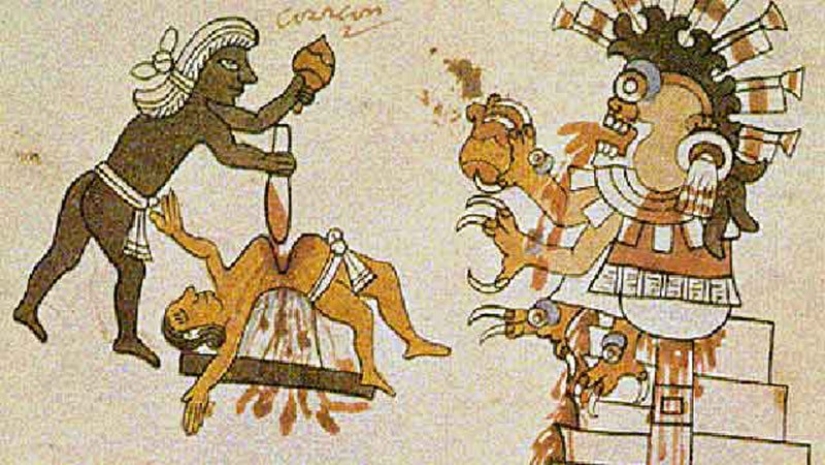
3. Aztec Sacrifices
Although historians have long known that the Aztecs held many bloody festivals with sacrifices, in 2004, near the modern city of Mexico, a terrible thing was found-a lot of dismembered and mutilated bodies of both people and animals, shedding light on the terrible rituals that were practiced here several hundred years ago.

4. Terracotta Army
This huge terracotta army was buried along with the body of Qin Shi Huang, the first emperor of China. Apparently, the soldiers were supposed to protect their earthly ruler in the afterlife.

5. Screaming mummies
Sometimes the Egyptians did not take into account the fact that if you do not tie the jaw to the skull, it will eventually open as if the person screamed before death. Although this phenomenon is observed in many mummies, it does not become less creepy. At times, archaeologists find mummies that seem to have actually screamed before dying for some (most likely, not the most pleasant) reasons. In the photo, the mummy, which was named "Unknown person E". It was discovered by Gaston Masparo in 1886.

6. The First Leper
Leprosy (leprosy), also called Hansen's disease, is not contagious, but people who suffered from it often lived outside of society because of their external deformity. Since Hindu traditions cremate corpses, the skeleton in the photo, which is called the first leper, was buried outside the city.

7. Ancient chemical weapons
In 1933, the archaeologist Robert do Mesnil do Busson was excavating under the remains of an ancient Roman-Persian battlefield when he came across some siege tunnels dug under the city. In the tunnels, he found the bodies of 19 Roman soldiers who had died trying desperately to escape from something, as well as one Persian soldier clinging to his chest. Most likely, when the Romans heard that the Persians were digging a tunnel under their city, they decided to dig their own to counterattack them. The problem was that the Persians found out about it and set a trap. As soon as the Roman soldiers descended into the tunnel, they were met by burning sulfur and bitumen, and this infernal mixture is known to turn into poison in human lungs.
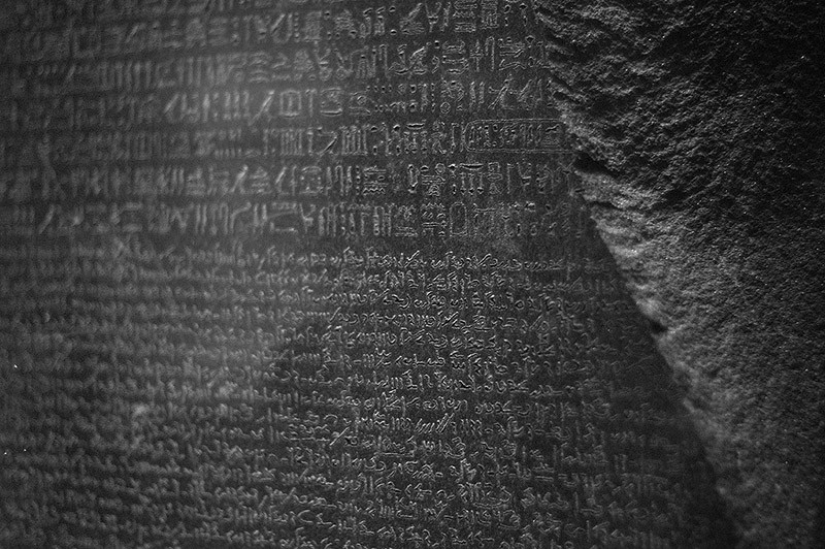
8. Rosetta Stone
Discovered in 1799 by a French soldier digging in Egyptian sand, the Rosetta Stone has become one of the greatest archaeological finds to date and the main source of modern understanding of Egyptian hieroglyphs. The stone is a fragment of a larger stone, on which is written the decree of King Ptolemy V (about 200 BC), translated into three languages-Egyptian hieroglyphs, demotic writing and ancient Greek.

9. Dikvis Balls
They are also called the stone balls of Costa Rica. Scientists believe that these petrospheres, almost perfect balls that are now located in the mouth of the Dikvis River, were carved around the turn of the millennium. But no one can say for sure what they were used for and for what purpose they were created. It can be assumed that these were symbols of the heavenly bodies or designations of the borders between the lands of different tribes. Parascientific authors often claim that these "ideal" spheres could not have been made by the hands of ancient people, and associate them with the activities of space aliens.

10. The Man from Groball
Mummified bodies found in swamps are not uncommon in archaeology, but this body, named by the Groball Man, is unique. Not only was he perfectly preserved with his hair and nails intact, scientists were also able to determine the cause of his death from the findings collected on and around his body. Judging by the large wound on his neck from ear to ear, it looks like he was sacrificed to ask the gods for a good harvest.

11. Desert snakes
At the turn of the twentieth century, pilots discovered a series of low stone walls in Israel's Negev Desert, and they have baffled scientists ever since. The walls could be more than 64 km in length, and they were nicknamed "kites", as they are very similar to reptiles from the air. But recently, scientists have concluded that the walls were used by hunters to corral large animals into enclosures or throw them off rocks, where they could easily be killed several at a time.
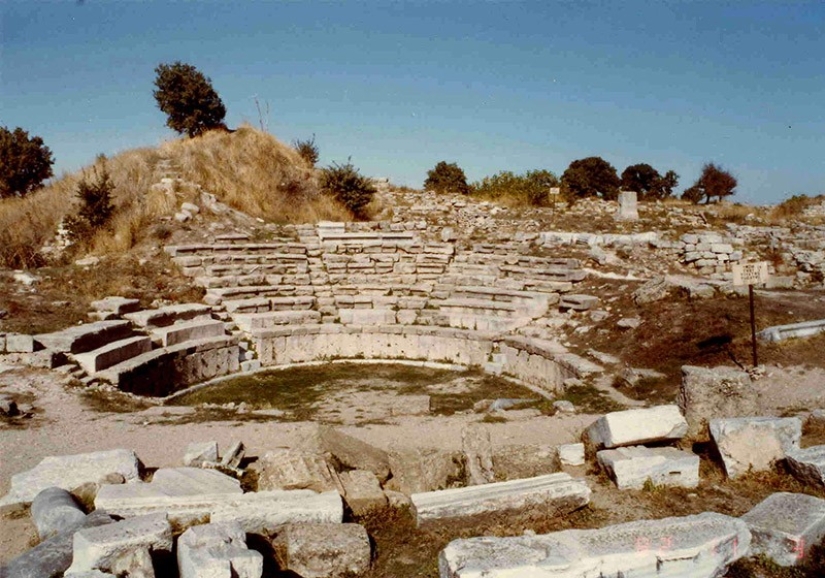
12. Ancient Troy
Troy is a city well known for its history and legends (as well as for its valuable archaeological finds). It was located in the north-west of Anatolia in the territory of modern Turkey. In 1865, English archaeologist Frank Calvert found a trench in a field he had bought from a local farmer in Hissarlik, and in 1868, wealthy German businessman and archaeologist Heinrich Schliemann also began excavating in the area, after meeting Calvert in Canakkale. As a result, they found the ruins of this ancient city, the existence of which was considered a legend for many centuries.
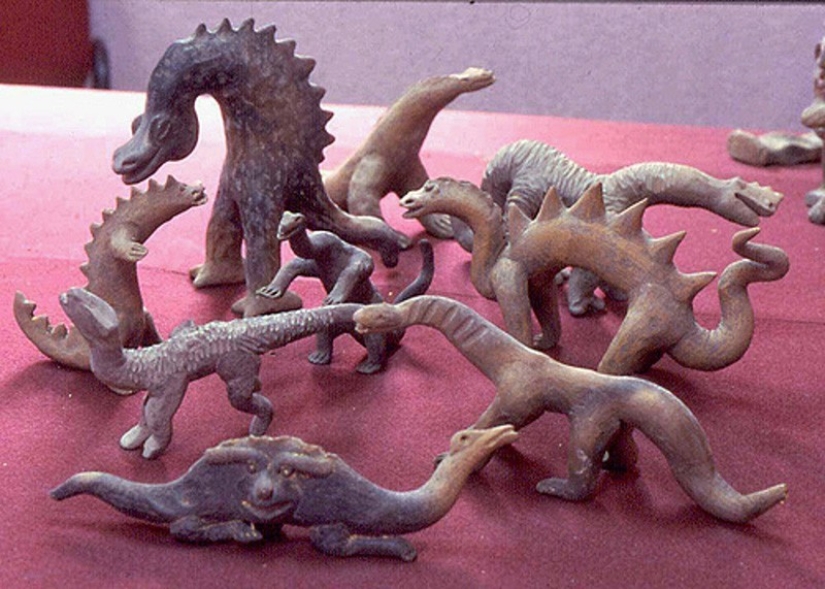
13. Akambaro Figurines
This is a collection of more than 33,000 miniature clay figurines that were discovered in 1945 in the ground near Acambaro, Mexico. The find includes many small figures that resemble both humans and dinosaurs. Although most of the scientific community now agrees that these figurines were part of an elaborate scam, at first their discovery made a splash.

14. Anti-terrorist mechanism
Found on the wreckage of a ship off the Greek island of Andikitira at the turn of the twentieth century. This device, which is 2000 years old, is considered the world's first scientific calculator. With dozens of gears, it can accurately determine the location of the sun, moon, and planets by simply entering data. Although the debate over its exact application continues, it definitely proves that even 2000 years ago, civilization was already making huge strides towards mechanical engineering.
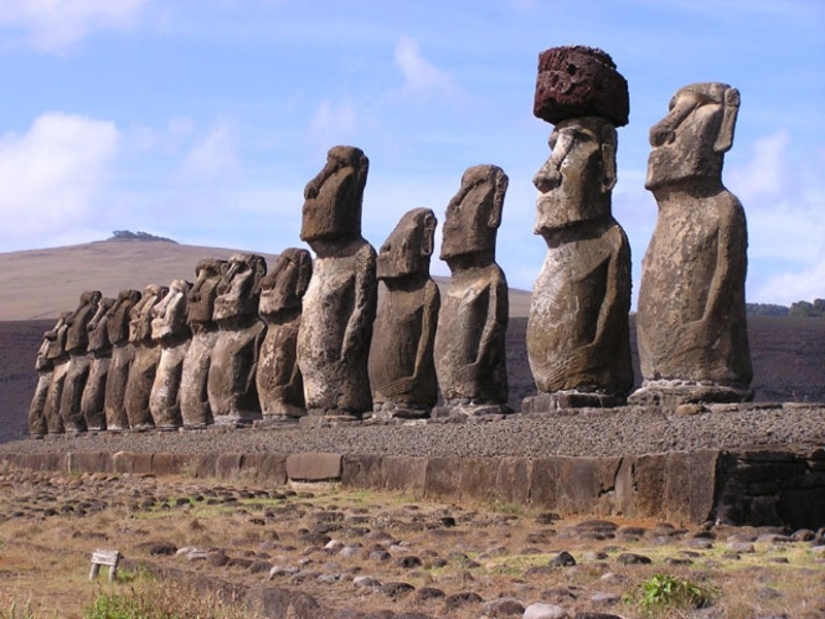
15. Rapa Nui
Known as Easter Island, this place is one of the most isolated places in the world. It is located thousands of kilometers from the Chilean coast. But the most amazing thing about this place is not even that people managed to get to it and live in it at all, but that they managed to erect huge stone heads all over the island.

16. The Tomb of Sunken Skulls
While excavating on the dried-up lake bed in Motala, Swedish archaeologists came across several skulls with sticks sticking out of them. But this, apparently, was not enough: in one skull, scientists found pieces of other skulls. Whatever happened to these people 8,000 years ago, it was eerie.
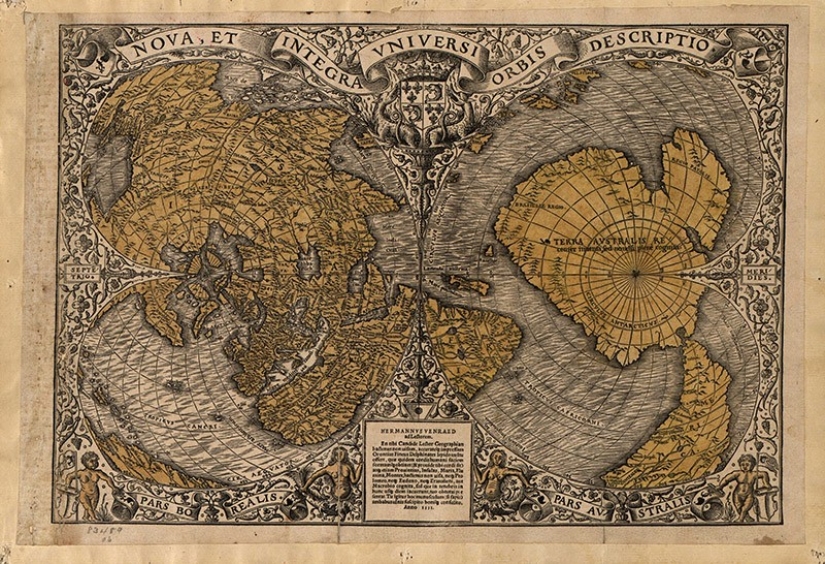
17. Piri-reis map
This map dates back to the early 1500s. It shows the outlines of South America, Europe, and Africa with amazing accuracy. Apparently, it was compiled by general and cartographer Piri Reis (hence the name of the map) from fragments of dozens of other maps.
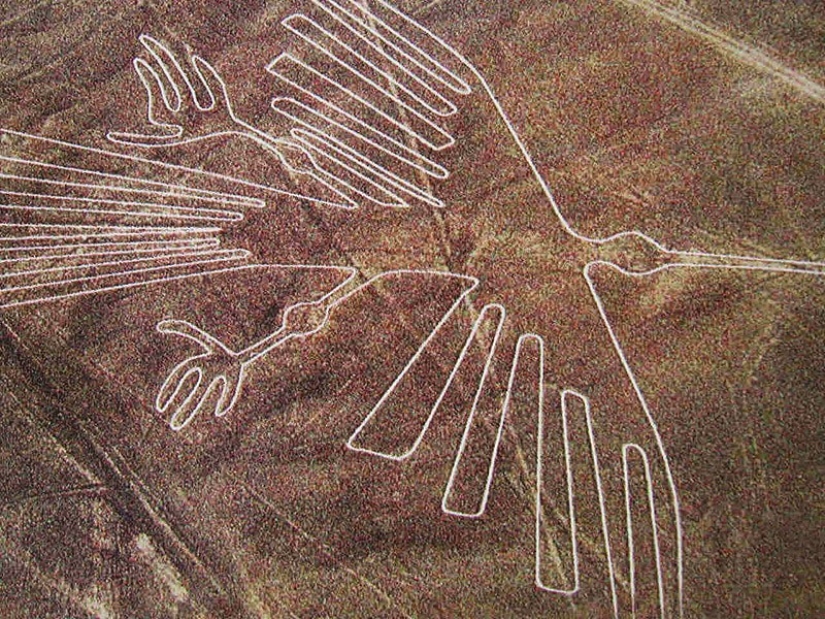
18. Nazca Geoglyphs
For hundreds of years, these lines were almost under the feet of archaeologists, but they were discovered only in the early 1900s for the simple reason that they were impossible to see unless you look from a bird's eye view. There were many explanations-from UFOs to a technically advanced civilization. The most plausible explanation is that the Nazca were amazing surveyors, although the reason why they drew such huge geoglyphs is still unknown.

19. The Dead Sea Scrolls
Like the Rosetta Stone, the Dead Sea Scrolls are one of the most important archaeological finds of the last century. They contain the earliest copies of Biblical texts (150 BC).

20. Moa of Mount Owen
In 1986, an expedition was going deeper and deeper into the Mount Owen cave system in New Zealand, when it suddenly came across a huge part of the paw that you are now looking at. It was so well preserved that it looked as if its owner had died quite recently. But later it turned out that the paw belonged to a moa — a huge prehistoric bird with a terrible set of sharp claws.
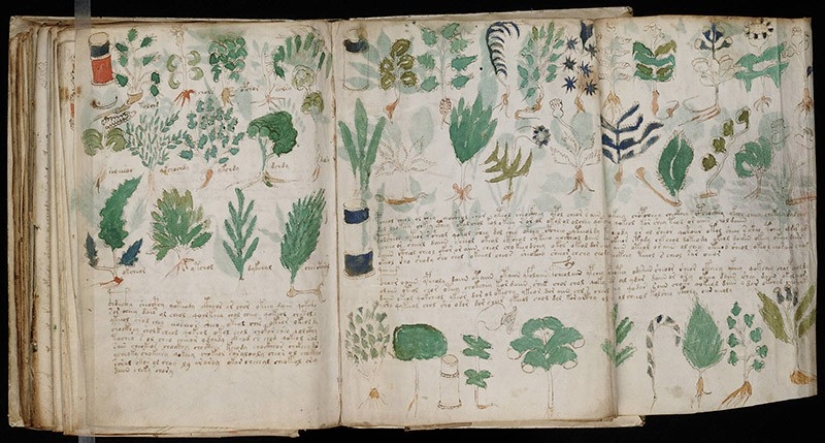
21. The Voynich Manuscript
It is called the most mysterious manuscript in the world. The manuscript was created in the early 15th century in Italy. Most of the pages are filled with recipes for herbal infusions, but none of the plants presented are the same as those currently known, and the language in which the manuscript is written is impossible to decipher at all.

22. Gobekli-Tepe
At first it seems that these are just rocks, but in fact it is an ancient settlement, discovered in 1994. It was created about 9,000 years ago, and now it is one of the oldest examples of complex and monumental architecture in the world, which appeared much earlier than the pyramids.
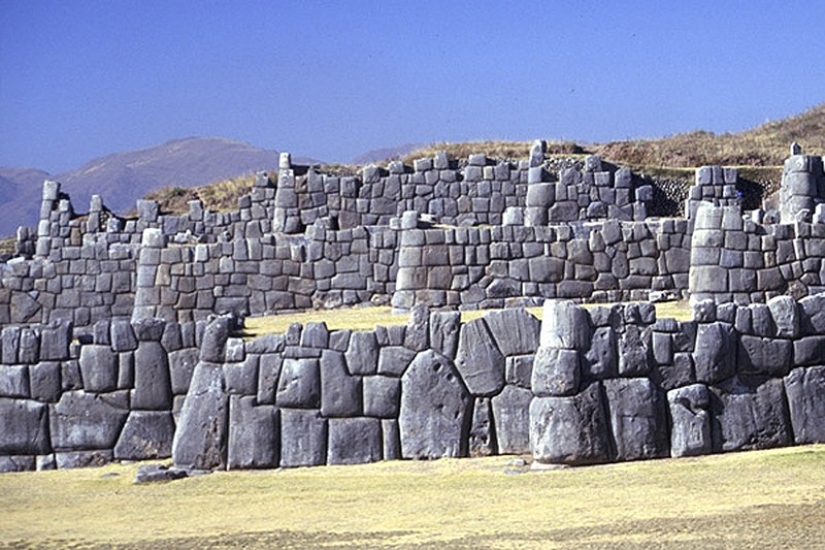
23. Sacsayhuaman
This walled complex near the city of Cuzco in Peru is part of the so-called capital of the Inca Empire. The most incredible thing is the details of the construction of this wall. The stone slabs are so close together that it is impossible to put even a hair between them. This shows how accurate the architecture of the ancient Incas was.
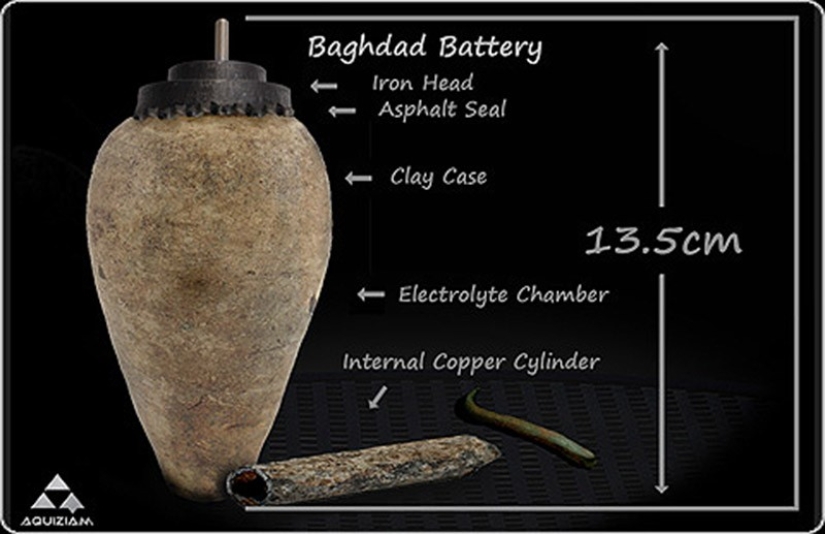
24. Baghdad Battery
In the mid‑1930s, several simple-looking jars were found near Baghdad, Iraq. No one attached much importance to them until the curator of the German museum published a document stating that these jars were used as galvanic cells, or, in simple terms, batteries. Although this opinion was criticized, even the "Mythbusters" got involved in this case and soon came to the conclusion that such a possibility exists.
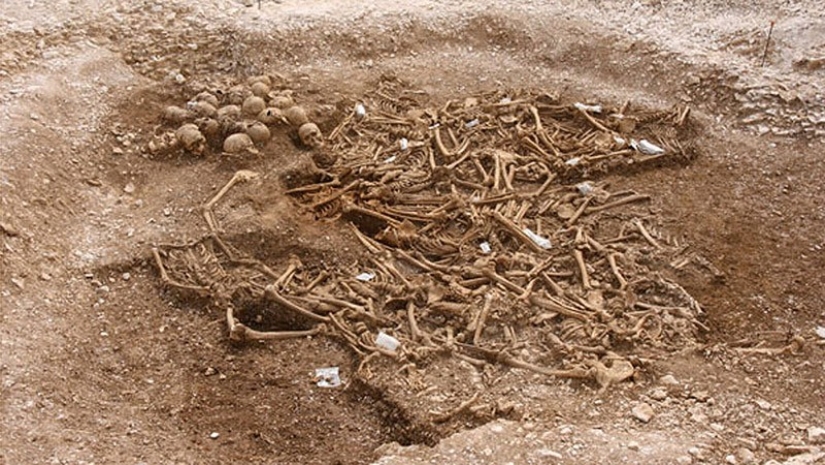
25. The Headless Vikings of Dorset
While laying a railway to the English city of Dorset, workers came across a small group of Vikings buried in the ground. They were all headless. At first, archaeologists thought that perhaps one of the villagers survived the Viking raids and decided to take revenge, but after careful analysis, everything became even more hazy and confusing. The decapitation looked too precise and precise, which meant that it was carried out only from behind. But scientists can't say for sure what really happened.
Keywords: History | Archeology | Best | Find
Post News ArticleRecent articles

It's high time to admit that this whole hipster idea has gone too far. The concept has become so popular that even restaurants have ...

There is a perception that people only use 10% of their brain potential. But the heroes of our review, apparently, found a way to ...
Related articles

In the fall of 1972, Bill Yates traveled through the countryside in the vicinity of Tampa, Florida. At that time, he was studying ...

When a person is in a life-threatening situation is awful, but even worse when it happens to a child. 11-year-old American Terry ...

Remember how broke the "unbreakable" scoop? The photo preserved in the photo album of almost every family! A selection of vintage ...

New Year's is a time to surprise and delight loved ones not only with gifts but also with a unique presentation of the holiday ...